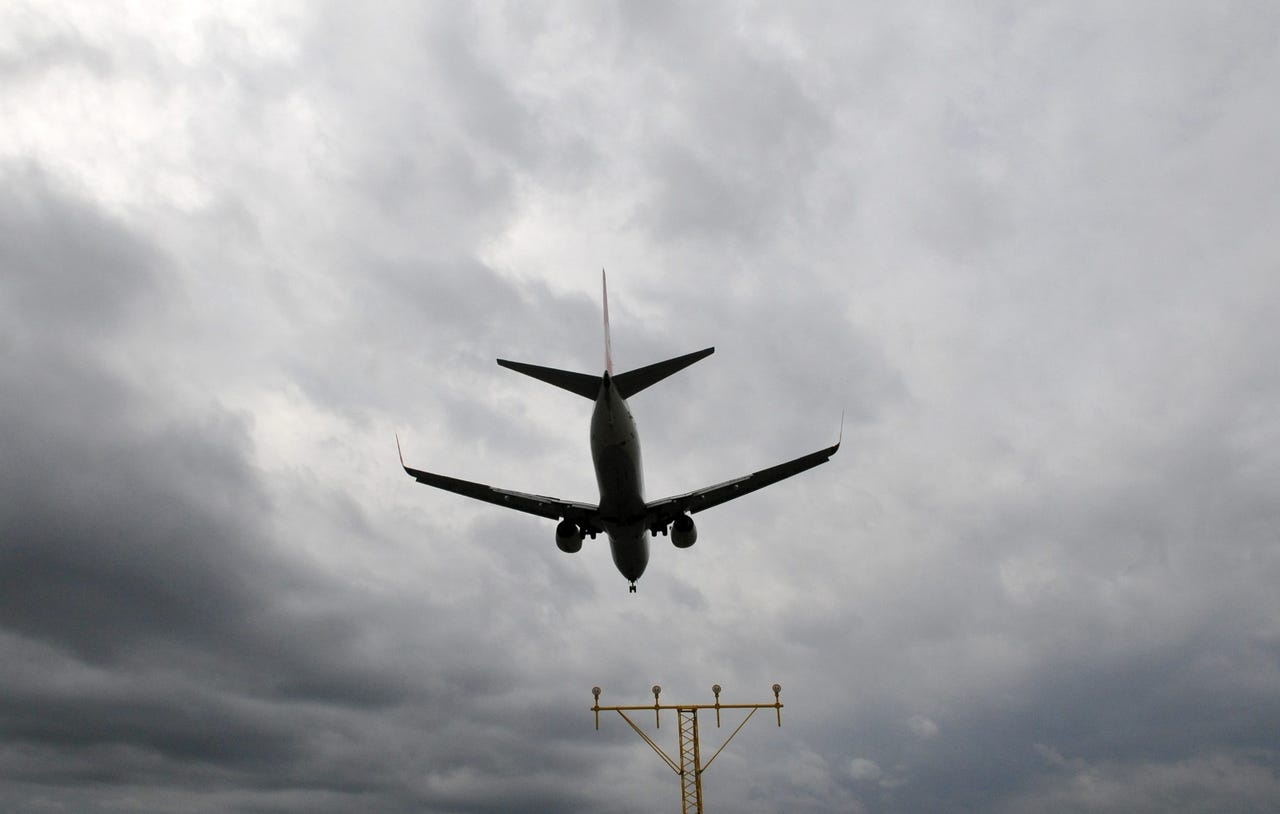You're right. That 'electronic Muslim ban' makes no sense


(Image: file photo)
NEW YORK -- A lot of people woke up confused by the news this morning that the US government is banning electronics on some inbound flights from several Muslim-majority countries.
They're right. It doesn't make sense.
The simple rundown is that passengers on all airlines with direct flights from ten Middle Eastern and African airports -- including in Turkey, Saudi Arabia, and Jordan -- will not be allowed any electronics larger than a smartphone in the cabin, except vital medical equipment. That means cameras, tablets and ebooks, portable DVD players, and laptops have to be stored in the cargo.
(For the record, there are no US airlines that fly directly to the US out of those airports.)
The ban, set to go into effect on Friday, follows two failed executive actions by President Trump, which banned immigrants entering the US from seven majority-Muslim nations. Both attempts to implement the orders were later shut down by the courts.
UK authorities added some credence to the situation by saying that they would "follow" the US electronics ban advice, saying the measures were "necessary, effective and proportionate" -- but did not say why.
Some, including Rep. Adam Schiff (D-CA, 28th), the ranking member on the House intelligence committee, backed the new electronics ban, citing a weekend briefing by Homeland Security.
The big question is why -- or rather, why now?
Senior administration officials, who would only talk on background on a call on Monday evening, cited an unspecified terrorist threat from the named ten airports, based on ongoing "evaluated intelligence." The officials would not say what the threat is, where or which agency collected or provided the intelligence, nor would they discuss "matters of intelligence," or any other questions we sent to a spokesperson, who did not respond at the time of writing.
Clear as mud then.
But NBC News confirmed earlier today that the ban was "not prompted by a specific new threat discovered in recent days," and that terror groups are "constantly seeking to perfect methods to hide bombs in devices."
So far, what is clear is how confused passengers and experts are alike, trying to understand the new rules better.
"This makes no goddamn sense," said Daniel Drezner, a professor of international politics at the Fletcher School of Law and Diplomacy at Tufts University, in a tweet.
Like others, Drezner pointed to a report analysis by The Washington Post (via the paywalled Financial Times), which accused the Trump administration of launching an assault against large and rapidly-growing Gulf carriers because it says they are "competing unfairly on long-haul routes" by enjoying hidden subsidies from their governments.
"These airlines have been quietly worried for months that President Trump was going to retaliate," said the Post's analysis. "This may be the retaliation," it added.
"[The] logic and implementation behind [the ban] is very odd," said Scott Battey, a global security specialist, in a tweet. He said that unless US and UK officials can point to a specific threat, then claims of protectionist trade policies "is going to be the main narrative," he added.
Others, too, have called out another obvious flaw with the electronics ban.
"There is also no explanation for why electronic devices in the cabin are a concern, and electronic devices in the baggage hold are not," said the Post.
Ben Schlappig, a travel expert writing on his blog, too questioned the restrictions.
"Is the fear that a bomb will be masked as an electronic device? This has long been a fear, and is usually solved by requesting that all electronics be powered on during a security inspection," said Schlappig. "If the fear is that bombs are masked as electronic devices, then how is having them checked solving anything? At least in the past, some bombs have been detonated in the cargo hold using a timer," he added.
This is a key point that senior administration officials could not (or would not) answer on Monday's call.
And others have pointed out flaws with the airports targeted by the ban -- all of which have direct flights to the US, just not from US carriers.
Security
Zeynep Tufekci asked in a tweet why potential terrorists "can't fly via Frankfurt" or another airport to evade the measures. "A terrorist can obviously fly through Europe or South America," she said. "Also if laptops are a threat, they should obviously be banned universally," she added.
In a statement, the American Civil Liberties Union didn't pull punches, calling the electronics ban "discriminatory."
"The administration hasn't provided a security rationale that makes sense for this measure targeting travelers from Muslim-majority countries," said Hina Shamsi, director of the ACLU National Security Project.
"Given the administration's already poor track record, this measure sends another signal of discriminatory targeting," she said.
In 2001, a British national tried to blow up a plane by hiding explosives in his shoes. Now we take our shoes off when we go through airport security. In 2006, a plot to create an mix of explosive liquids over US cities resulted in a cap on the amount of gels and liquids that could be brought in the cabin. And, more recently in 2010, an effort to plant bombs in printer toner cartridges resulted in new restrictions imposed on air cargo.
But this time around, there's nothing substantial or current that US officials can point to, and a lack of transparency regarding a potential threat only hurts public trust and confidence.
With the recent executive orders also targeting majority-Muslim nations -- you're right, it's no wonder an "electronic Muslim ban" with no precipitating event is a tough sell.